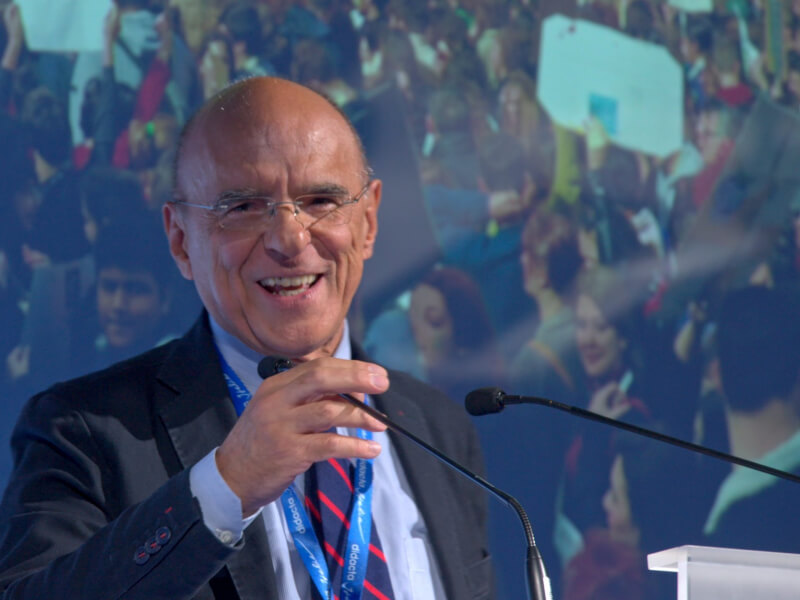11 July 2023 – The present is full of fear. Wars, pandemics, climate warming, ecological disasters, economic downturn, social and political turmoil: We are not short of reasons to be fearful. In privileged countries, where for decades the future always looked better than the present, more and more people are feeling overwhelmed. Their situation has been stagnating for long, only to discover that time has come to assume new losses, with one truly painful: the loss of the future.
And we react to fear with more fear. We perceive every change as a threat, and we reply to war with more war and the distrust of institutions with more surveillance and control, reinforcing distrust. It is now urgent to reopen the space of possibilities.”It’s not in the stars to hold our destiny but ourselves,” as Shakespeare put it. We create the sources of our fears, so we could also create sources of hope.
Without a doubt, we face a civilizational dilemma: Either we learn what it takes to build sustainable, inclusive prosperity, or we keep going down to unprecedented levels of tragedy. At the same time, we know that societies can shift through learning new patterns in critical situations propitious for systemic transformation. The recent Beyond Growth 2023 conference at the European Parliament is a step in that direction.
What does it take to learn what we need to learn at this stage? For a new synthesis of equitable human well-being within a healthy biosphere to be on our horizon, regeneration has to become the social norm. And regeneration starts by recognizing the tragedies we create and by taking as existential for ourselves what is existential for humanity—less of talking about the challenges and more of living them to explore new responses.
This is not to be mistaken with the technological promise of novelty. We bet on the humanity and capacity of everybody and on technology helping to slow down and enable a deeper reconnection among humans and with nature. The future needs to be liberated, rehumanized and regenerated for a second chance for humanity on Earth.
Regeneration across the generations
Liberating the regenerative potential of human organizations requires more than technical approaches and more than financial investments. We need to inquire into the conditions for regenerative models to become possible, viable and widespread. The inquiry starts with the mobilization of hearts and minds, shifting from the many dissonances of today to collective creativity until what seems impossible becomes inevitable.
This is the essence of the ongoing work of the Fifth Element programme at the Club of Rome, supported by InTent and in cooperation with the Weidenfeld-Hoffmann Trust. That ambitious goal cannot be achieved without engaging with humility in mutual learning across generations. We do not have the right responses to transmit to younger and future generations; more than ever, our exploratory task has to be done together with them. This is why we have been working with the St. Gallen Symposium on the concept of a New Generational Contract, which was the core focus of the successful Symposium´s 52nd edition in May. And we look forward to further developments for the sake of humanity.
Life for learning, learning for life
Regenerative organizations led by regenerative leaders are the medium for this transformation of business and society. And if culture is the way to change our economy, then learning and education are the media to achieve it. Their role in a regenerative economy is more important than regulation. And learning comes from living and exploring the challenges and embracing the complexity of life.
Regenerative skills would encompass all literacies: As much everybody’s learning potential as expertise, as much indigenous worldviews as leading-edge research, as much arts, humanities, and social knowledge as natural sciences. Schools and universities might become the places where competent, regenerative leaders are cultivated to be gardeners of our ecosystems, not arrogant managers indifferent to the consequences of their actions.
The future is profoundly unknown. It is up to us to make its exploration insightful and creative, or blind and tragic. Ingredients exist to make the future humane, inclusive and prosperous – provided we collaborate in living regeneratively together.
First published in World Economic Forum






